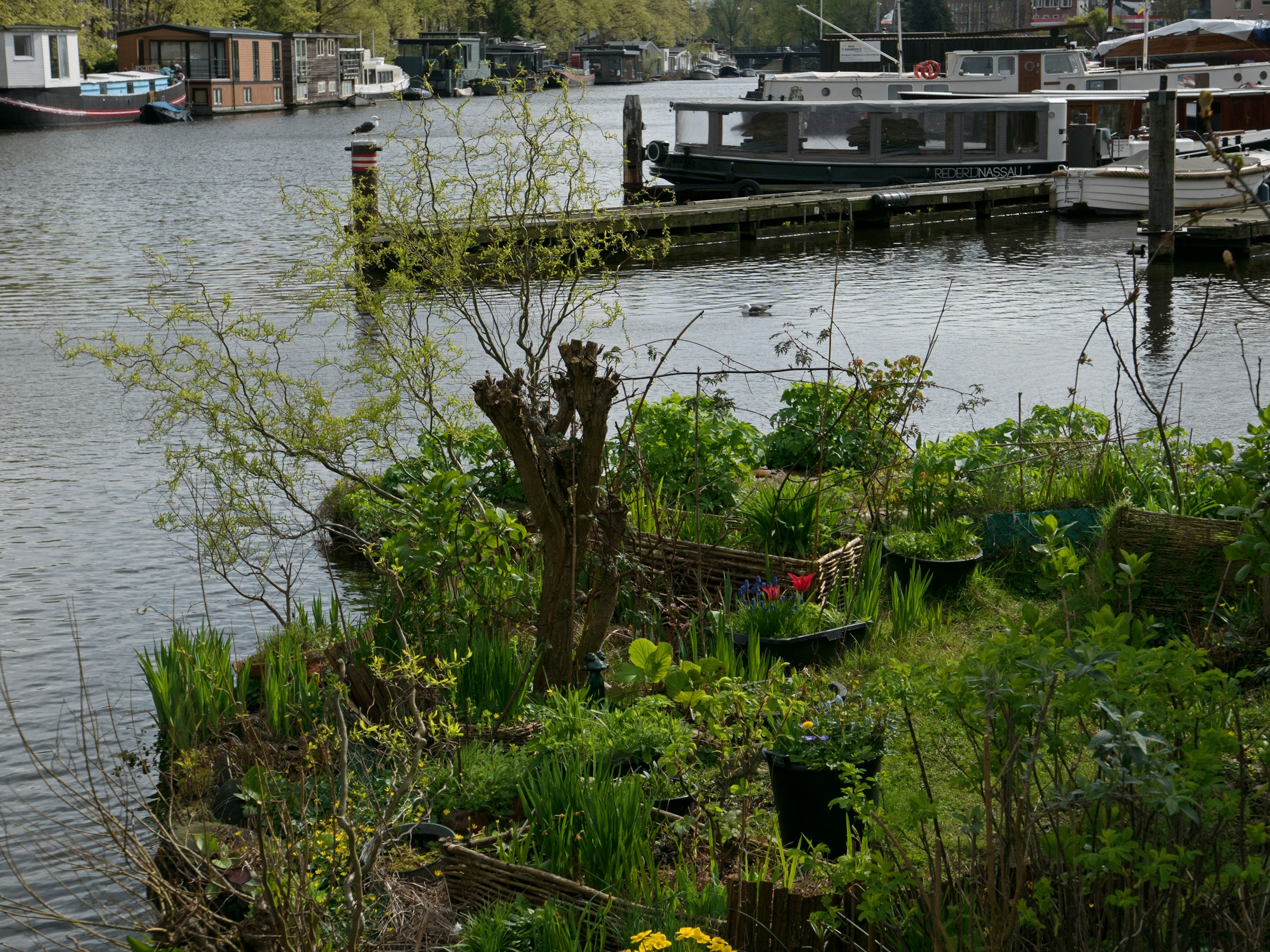Overview of Urban Gardening
Urban gardening is an innovative approach to utilising space within city landscapes to cultivate plants and food. This practice includes various forms, such as rooftop gardens, community gardens, and vertical farming. Each method serves urban environments uniquely by maximising limited space.
Historically, urban gardening has roots stretching back to wartime efforts, where “victory gardens” helped supplement food supplies. These initiatives laid the groundwork for today’s resurgence in urban agriculture, driven by increased awareness of sustainability and food security.
Have you seen this : Exploring the Connection: The Effects of Social Media on Teen Sleep Quality
Types of Urban Gardening
- Rooftop Gardens: Transform underutilised rooftop areas into productive green spaces.
- Community Gardens: Shared plots in urban settings foster community spirit and provide access to fresh produce.
- Vertical Farming: Utilises vertical spaces to grow crops, often using hydroponic or aquaponic systems to conserve resources.
Benefits of Urban Gardening
The benefits of urban gardening are extensive, impacting both environmental and social aspects. Firstly, it enhances biodiversity in urban areas, introducing green spaces that support wildlife. Additionally, urban gardening provides fresh produce access and encourages healthier eating habits. Socially, community gardens foster camaraderie and cooperation among participants, enhancing community bonds. Finally, these practices contribute to environmental sustainability by reducing the carbon footprint associated with food transport and production. Urban gardening exemplifies a harmonious blend of community involvement and ecological responsibility.
Psychological Benefits of Urban Gardening
Urban gardening offers a multitude of psychological benefits, greatly enhancing mental health. Studies have shown that engaging with nature through gardening significantly improves overall well-being by promoting relaxation and reducing stress. Researchers have consistently found a link between gardening and a reduction in anxiety levels, highlighting its effectiveness as a stress relief tool.
Topic to read : Unlocking Flexibility and Wellness: The Transformative Benefits of Aerial Yoga
One study revealed that individuals who participated in gardening activities reported lower cortisol levels, a hormone associated with stress. By dedicating time to nurturing plants, individuals can experience a soothing escape from the pressures of urban life. The process of caring for a garden provides a sense of accomplishment and fosters patience, contributing positively to mental health.
Testimonials from urban gardeners further emphasize these psychological benefits. Many individuals express feelings of satisfaction and peace derived from their daily gardening routines. They describe the meditative quality of tending to plants, which invites mindfulness and stress relief in an otherwise hectic environment. These personal experiences reinforce the scientifically-backed assertion that urban gardening is a powerful tool for enhancing one’s mental health.
By engaging in urban gardening, individuals are not only cultivating plants but also nurturing their own psychological well-being through this practical yet therapeutic practice.
Social Connections Fostered by Urban Gardening
Urban gardening not only beautifies spaces but also enhances community engagement. People who participate in shared gardening activities form meaningful social connections. This is primarily due to the group gardening experience which encourages interaction among diverse individuals. Community bonding often occurs when people come together to share tasks, swap gardening tips, and celebrate harvests.
Notable projects, like the Greenthumb Garden in New York, showcase how group gardening can knit a community closer. Through these initiatives, individuals report increased friendships and a sense of belonging. Such projects usually become a social hub, attracting a diverse range of participants such as families, students, and retirees.
Statistical insight from studies highlights the impact of urban gardens on social interactions. According to a 2022 survey, 78% of participants reported making new friends through community gardening. In another study, a notable increase in participants’ mental well-being was recorded, linked to increased social interactions. These figures robustly illustrate the profound benefits of urban gardening for community engagement.
Shared responsibility in group gardening not only fosters social connections but also promotes collective responsibility and understanding, bringing tangible benefits in urban contexts. The data and case studies underline that engaging in urban gardening is a powerful catalyst for building stronger, more cohesive communities.
Environmental and Health Impacts of Urban Gardening
Urban gardening holds a transformative potential for both the environment and community wellbeing. By enhancing local ecosystems, these pockets of greenery can significantly contribute to urban ecology. One primary environmental benefit is improved air quality. Urban gardens act as natural air filters, absorbing pollutants and producing oxygen, which not only cleans the surrounding air but also mitigates the urban heat island effect. Statistics indicate a drop in local temperatures and a reduction in air pollution levels around these green spaces.
Beyond environmental advantages, urban gardening also offers profound health impacts. Access to fresh produce from community gardens leads to healthier eating habits, contributing to chronic disease prevention. Community gardens provide a readily available source of fruits and vegetables, encouraging healthier dietary choices. Research shows that individuals involved in urban gardening projects have better access to fresh produce, resulting in improved nutrition.
Urban gardening fosters a sense of community and physical activity. Communities often come together around these green spaces, enhancing social connections and promoting mental wellness. The participation in gardening activities serves as a natural form of exercise, further contributing to overall health improvements. Thus, urban gardens are a multifaceted solution to urban environmental and health challenges.
Implementing Successful Urban Gardening Projects
Urban gardening is more than planting seeds; it’s about cultivating community and collaboration. Here’s how you can kick off a successful project in your area.
Start by planning your project implementation. This involves identifying a suitable site and determining necessary resources, such as soil, seeds, and tools. Consider obtaining permits if required and planning the garden layout. Engage with local authorities who might offer guidelines or support for your project.
Fostering community involvement is crucial. Host informational meetings and invite local residents to share their thoughts. This creates a sense of ownership and encourages more active participation. Partnering with schools or local organizations can provide additional manpower and resources.
In terms of gardening tips, focus on sustainable practices. Encourage the use of composting, efficient watering methods, and planting compatible species. Offering workshops can educate community members on maintaining the garden.
Several resources and tools are available to assist urban gardening projects. Community gardens often benefit from grants, so researching these can provide financial aid. Online platforms and local gardening clubs can also provide valuable advice and support.
Incorporating these elements will enhance the success of any urban gardening initiative.
Case Studies of Urban Gardening Initiatives
Urban gardening initiatives have become increasingly popular, delivering profound benefits and inspiring success stories. For example, in New York City, the GreenThumb program is a prime example of successful urban gardening. As the largest community gardening program, it supports over 600 gardens. This initiative has positively influenced community dynamics, enhancing green space and environmental awareness.
Similarly, Vancouver’s City Farmer program focuses on educating citizens on urban agriculture. Through workshops and demonstration gardens, they have successfully integrated gardening into urban life, fostering an appreciation for sustainable practices. The program demonstrates the power of well-planned urban gardening initiatives, leading to both personal and community growth.
Lessons learned from these initiatives emphasize the importance of accessibility and inclusivity. Ensuring that community members have the resources to participate is crucial for the success of these gardens. This not only improves the physical environment but also boosts social connections among residents.
The impact of these initiatives on community well-being is significant. Gardens provide a shared space for interaction, reducing stress and creating opportunities for informal education about sustainability. As more cities explore urban gardening, these case studies offer valuable insights into the transformative potential of such projects.
Future Trends in Urban Gardening
As modern cities grow, the future of gardening increasingly relies on creativity and technology. Urban agriculture is blossoming as individuals and communities seek sustainable lifestyles amidst concrete environments. Advanced technology integration, such as smart irrigation systems and vertical gardens, enables more efficient use of limited urban space, optimising growth cycles. Sensor-based and AI-driven applications are already transforming how we monitor plant health and resource consumption, ensuring productivity while conserving water and energy.
City planners are taking note of these innovations, recognising urban agriculture’s potential to redefine public spaces. Predictions for the future indicate that as urban gardens become integral to cityscapes, they will influence zoning laws and infrastructure development. The fusion of green spaces with urban architecture not only enhances aesthetic appeal but also contributes to environmental health.
Central to these changes are sustainability trends. Practices such as soil regeneration, permaculture principles, and community-based gardening are prioritised for their minimal environmental footprint. By supporting local food networks and reducing transportation emissions, urban gardening aligns with broader ecological goals. Overall, the evolution of urban gardening methods exemplifies a commitment to sustainability, fostering resilient and eco-friendly cities.













